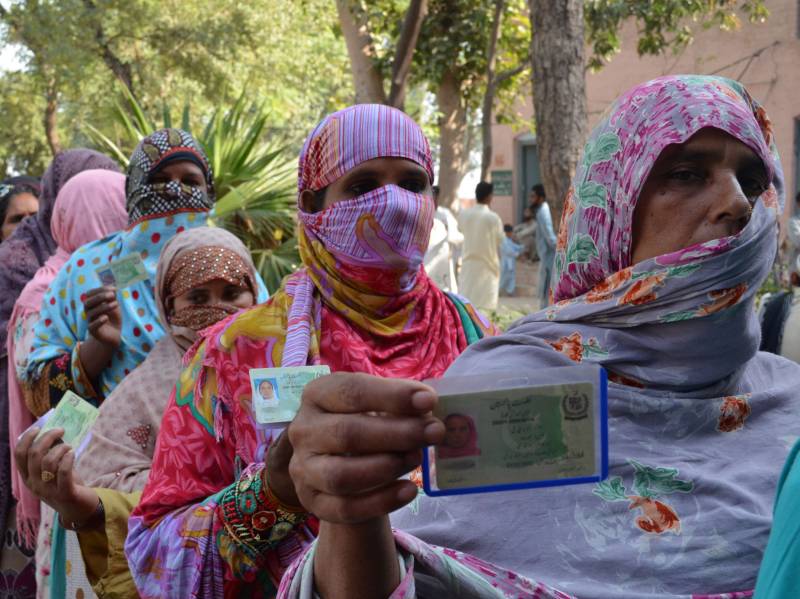
As we navigate the complexities of the 21st century, women’s political participation and representation remain pivotal to building robust democracies and inclusive decision-making processes. In 2024, a historic milestone will be reached as 1.3 billion women across more than 60 countries exercise their right to vote. This unprecedented participation underscores the critical importance of addressing the barriers that still hinder women's full engagement in political life.
A pressing issue in the development space, particularly in women's development, is the often-missing dialogue between scholars and practitioners. Farida Jalalzai, PhD, in her role at Virginia Tech, has frequently highlighted this gap, emphasizing the need for a more integrated approach. Similarly, Farhat Haq, PhD, in her role at Lahore University of Management Sciences (LUMS) continues to emphasize the need for further inquiry and data in contextualizing women’s role in public spaces. As someone who straddles both worlds, I have witnessed firsthand the challenges and opportunities that arise when theory meets practice.
My career has afforded me unique insights into these dynamics. I have served as one of the youngest women in an executive cabinet in St. Louis County, been a board member for national organizations, and participated in local decision-making as an advisory committee member. These roles have exposed me to the systemic barriers, power dynamics, and patriarchal structures that women must navigate. As we rebuild from the failures of old systems, it is imperative to reimagine "inclusion"—not merely as a buzzword but as a fundamental principle guiding leadership, engagement, and participation.
Today, political landscapes are marked by crisis and transition, characterized by social change, revolution, and evolution. Discussions at the United Nations Commission on the Status of Women (CSW), one of the largest women’s development conferences, has repeatedly highlighted the inefficiencies of outdated systems and the urgent need for alternative institutions. It is through these periods of chaotic transition that societies find opportunities for profound change.
Political parties play a crucial role in this transformation. They are instrumental in securing representation, developing policies, and transmitting societal demands into actionable commitments. Political parties recruit, select, and position individuals for decision-making roles, functioning both as guardians of democracy and mobilizers of power. For women, party support is often essential for election success, making the internal dynamics of these parties a key area of focus.
However, reality often falls short of the ideal. While political parties may espouse gender equality on paper, their actual practices can be inconsistent, influenced by leadership and political culture. This discrepancy is evident in countries like Pakistan, where the political pipeline for women is particularly “leaky.” My upcoming book, Representation: A Study of Gender Quotas in the National Assembly of Pakistan, examines the performative measures of women parliamentarians and the impact of increased female membership on power dynamics.
The study traces Pakistan's longest transitional-democratic period from 2002 to 2018, exploring the effectiveness of gender quotas and the role of women's identity and agency in a patriarchal society. It reveals that concepts such as representation, empowerment, access, and power must be viewed through a regional lens, considering Pakistan's unique political identity. A broader perspective is needed, one that distinguishes between access to resources through reserved seats and the actual empowerment outcomes.
Scholars like Mona Lena Krook, PhD, at Rutgers University, have continued to offer a foundational mechanism of contextualizing gender quotas in the political space. Building on the threshold of gender politics inquiry, effective strategies for increasing women's political participation must be locally grounded. While international frameworks like gender quotas provide a foundation, the narratives that drive these changes must be crafted and supported within the local context. This involves engaging voters and political parties as stakeholders in a process that integrates these narratives into public discourse.
Addressing the limitations of current capacity-building interventions requires a nuanced understanding of political culture and the realities within each country's borders. In Pakistan, this means recognizing the nation's priorities as a transitional democracy and aligning international frameworks with these priorities to avoid counterproductive outcomes.
Moreover, it is crucial to redefine what access and agency mean in this evolving landscape. As challenges and barriers shift, so too must our strategies. Leveraging knowledge and resources, fostering partnerships, and utilizing information communication technologies can empower women to become active changemakers within their communities.
Women's political participation is not merely about numbers but about genuine inclusion and empowerment. As we continue to discuss these issues at forums like the CSW, the commitments and recommendations shared by stakeholders will be vital in shaping resilient and inclusive political spaces for the future. Through collaborative efforts and innovative strategies, we can ensure that women's voices are not only heard but also have a lasting impact on the political landscape.

